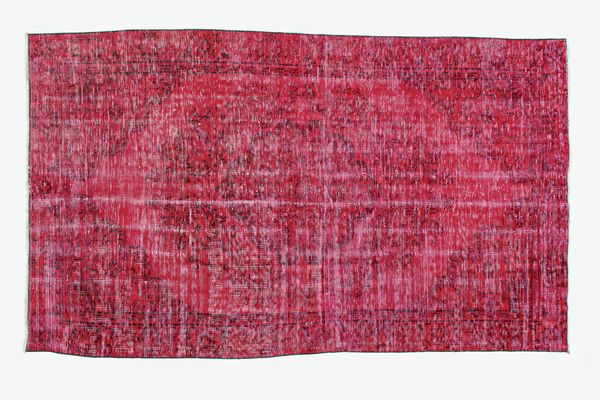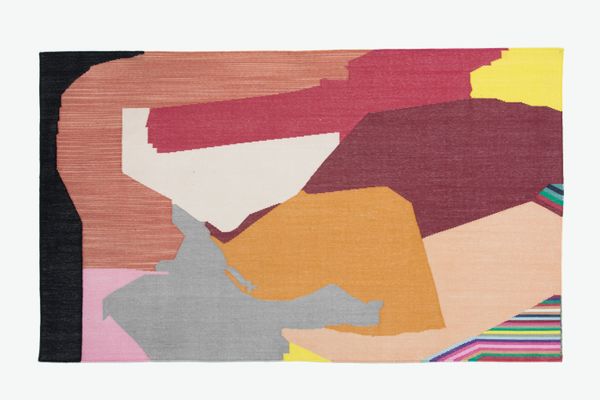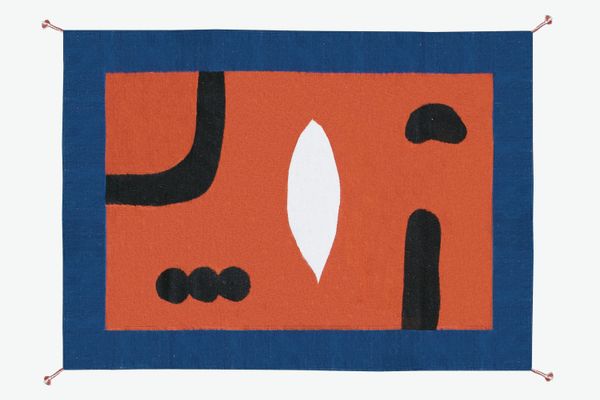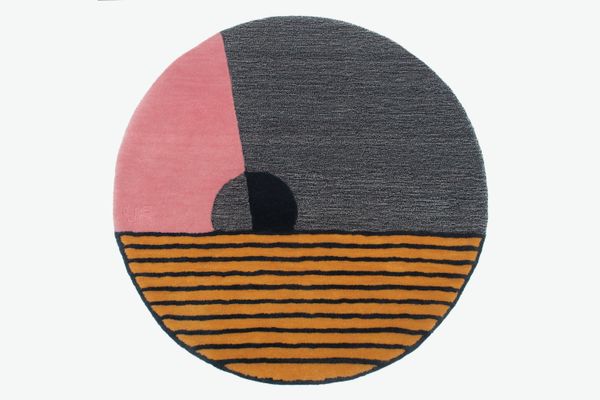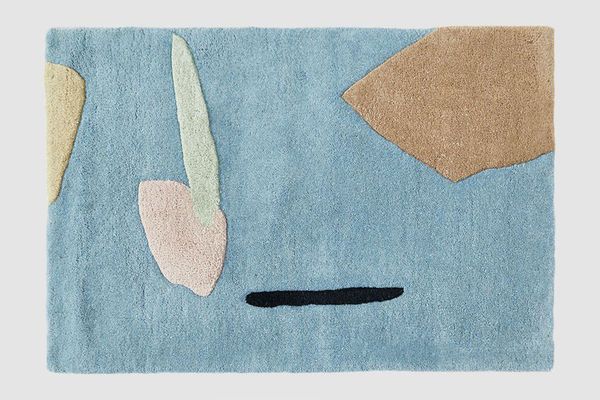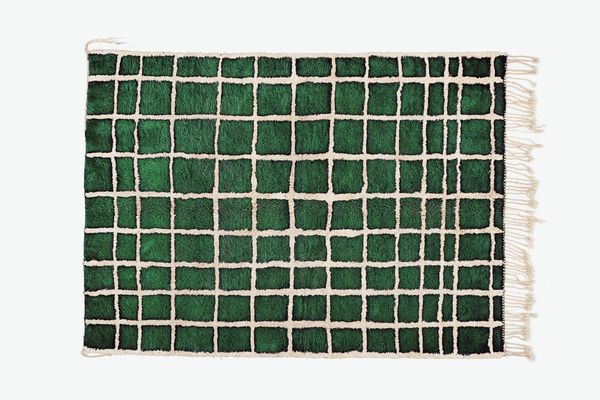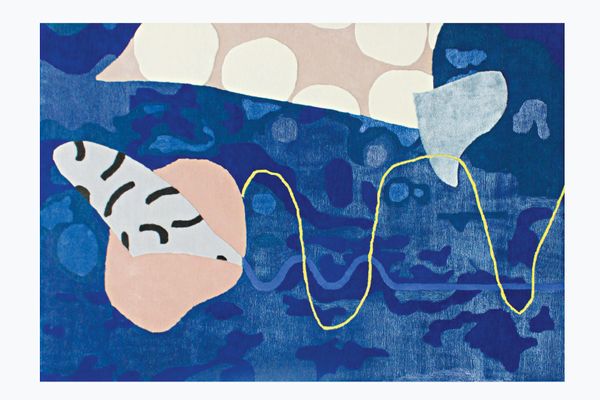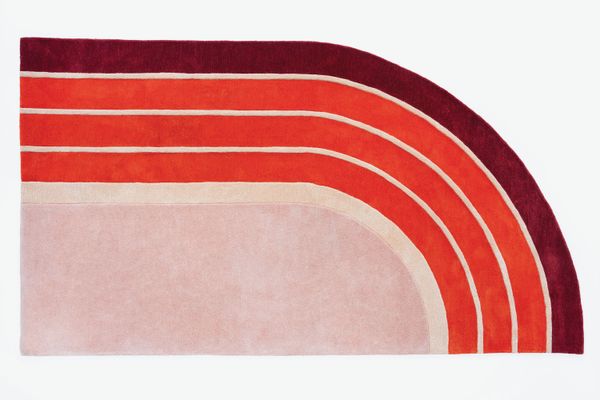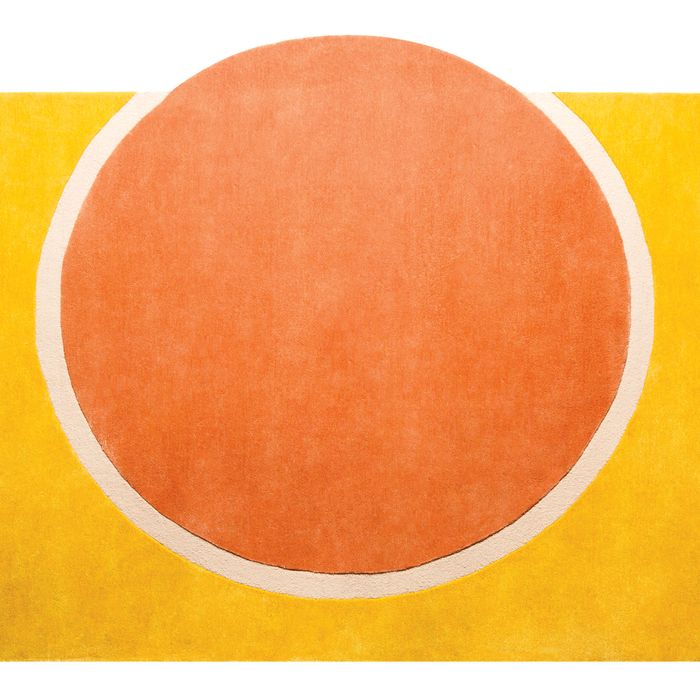
Here’s a little hack: Before buying a rug at Anthropologie or Urban Outfitters or even Crate & Barrel, do a quick online search for that very same rug. Chances are it’s available under a slightly different name, and at a cheaper price, at wholesalers like rugs.com or overstock.com, which you can see right there on Google. And so it has been for years in the rug world, where the traditional supply chain for both rare-Persian dealers and basic retailers includes middleman upon middleman, as the rugs go step-by-step from sheep shearers who collect the wool, to knotters who weave it into rugs, to foreign sellers who supply the American dealers. Along the way, each participant charges a little more to the next buyer until it lands in front of the consumer for thousands of dollars. Over the past few years, however, that’s started to change. A whole new slate of convenience-focused start-ups and young, cool designers are going straight to the source — whether that be in the Atlas Mountains of Morocco; outside Jaipur, India; or in indigenous communities in Oaxaca, Mexico — bringing what used to be very expensive rugs direct to consumers who prefer that their cozy floor coverings look like abstract basketball courts.
The Intentionally Threadbare Turkish
The look: Two of Revival’s co-founders live in Istanbul, where they work with local merchants to source vintage Turkish rugs, some of which have been treated to display a contemporary faux-rustic aesthetic. There are overdyed vintage rugs (from $141); distressed ones (from $223), which, although re-dyed, maintain the fades and marks of longtime use; and original vintage (from $125), which are classic Turkish rugs at surprisingly low prices.
The feel: The upgraded vintage rugs are all made of Turkish wool that’s been double-knotted, which is what has kept them in such usable condition for so long.
The fine print: Rugs arrive within seven business days, and delivery is free. Returns are accepted within seven days of receiving the rug, but you’ll pay the $20 return shipping.
The Graphic Hippie
The look: Designed in East Williamsburg by Arati Rao and Adam Sipe, the bold, graphic, and colorful cotton (from $150) and hemp (from $108) flat-weave rugs are made by Indian ikat weavers four hours outside Jaipur. The first collection, released in 2016, was inspired by early experiments in abstract animation.
The feel: The cotton rugs are thin and low to the ground, while the hemp ones, a bit bulkier and more “crunchy granola,” have a thicker, fuller texture that almost feels like a massage underfoot.
The fine print: Exchanges are accepted within seven days and money-back returns on a case-by-case basis.
The Indigenous Mexican Wools
The look: Rrres is based in Oaxaca, Mexico, and the rugs (from $325) are handmade from 100 percent wool by three local Zapotec families. The rugs are mostly sheep-colored (white, gray, black, and beige). When they’re burnt orange or mustard yellow, that means aniline dyes were used; the designs somewhat resemble abstract Matisse cutouts.
The feel: A bit thinner than a tufted rug but thicker than a flat weave, these have a definite wooliness to them. Before they’re shipped, each rug is cleaned using tweezers and a brush to minimize rogue itchy strands.
The fine print: Each piece takes ten to 15 days to produce and is a one-off or made in a limited series, so Rrres accepts returns on a case-by-case basis.
The Pleasantly Fugly
The look: Designer couple Cole and Lauren Hansen combine awkward 3-D shapes with mismatched patterns and bright colors for eccentric rugs that simply refuse to take themselves seriously. It’s a 21st-century take on the Memphis movement.
The feel: Oval rugs like the Contro (from $645) are handmade in India with New Zealand wool, while the amoeba-shaped Bandiera ($325) mixes and matches textures with a tufted-wool center island surrounded by hand-coiled cotton rope.
The fine print: Rugs are available for preorder now to ship in March. Exchanges are accepted within five days of delivery; returns are not.
The Famous Bath Mat
The look: The Brooklyn-based line, founded by partners Phoebe Sung and Peter Buer in 2010, released its first minimalist abstract rugs inspired by national parks in 2014. But it wasn’t until a year later that the brand made a name for itself worldwide with a playful boob-adorned bath mat ($60) that’s now sold everywhere from Forty Five Ten in Dallas to Things Tokyo in Japan.
The feel: Rugs are dyed for each production order by artisans in India using Indian wool and are either hand-tufted and shorn into varying heights for a 3-D effect (from $135) or, for a closer-to-the-ground feel, made in a flat weave (from $90). The bath mats are 100 percent cotton.
The fine print: If the rug is purchased directly from its site, Cold Picnic accepts returns, but only for store credit — no refunds. That might change if purchasing from a third-party stockist like Nordstrom.
The Modern Moroccan
The look: Beni takes the traditional, and ubiquitous, black-and-white Beni Ourain in new directions, such as Rothko-inspired rugs (from $745) and custom-designed rugs available in ten vibrant colors developed by a dyer in northern Morocco. For a demure tonal combination, Beni recommends the Meridian (from $465) in navy blue with a single azure stripe down the middle. Offering all kinds of customization, Beni has received requests for square and trapezoidal rugs and made them all.
The feel: The soft, fluffy shag rugs are made by hand from wool locally shorn in the Atlas Mountains; it is then washed and dried under the sun up to five times. The all-natural process reduces shedding, though the company still recommends vacuuming the rug a couple of times upon arrival.
The fine print: Each rug takes eight to ten weeks to ship. Because each is custom-made, returns are not accepted.
The Used-to-Be-a-Poster
The look: Graphic designer and now rug-maker Alex Proba began a project to design a print a day (there are thousands) and then turned a bunch of those posters into rugs. Best sellers include Day 1321, a blue-pink-and-green abstract piece with a section that looks like chlorophyll under a microscope (from $765), and Day 1292, which mixes Fred Flintstone’s favorite outfit with millennial pink — in a good way (from $765).
The feel: Each rug is either hand-tufted or hand-knotted using New Zealand wool, silk, or bamboo silk. Recently, Proba debuted gold-yarn rugs in collaboration with the lighting designers at Roll & Hill (from $2,600).
The fine print: Designed in Brooklyn but handmade in India, each rug is made to order, so factor in six weeks of production time. The site doesn’t usually accept returns, but if clients are unsure prior to purchasing, Proba will make a 15-by-15-inch sample.
The Retro Sporty
The look: From the home-product line of the Brooklyn-based creative agency An Aesthetic Pursuit, these Wes Anderson–y rugs (from $240) designed in hypersaturated colors were inspired by the shapes of tennis and basketball courts and track fields. The Half Court (from $350), for example, is an abstract version of just that.
The feel: Hand-tufted in India with a sturdy natural wool and synthetic viscose blend, each rug is shorn in varying heights for a more realistic look and a high-low feel.
The fine print: Each rug requires an eight-week lead time. Since they’re made to order, all sales are final.
*This article appears in the February 4, 2019, issue of New York Magazine. Subscribe Now!
The Strategist is designed to surface the most useful, expert recommendations for things to buy across the vast e-commerce landscape. Some of our latest conquests include the best acne treatments, rolling luggage, pillows for side sleepers, natural anxiety remedies, and bath towels. We update links when possible, but note that deals can expire and all prices are subject to change.
Every editorial product is independently selected. If you buy something through our links, New York may earn an affiliate commission.
